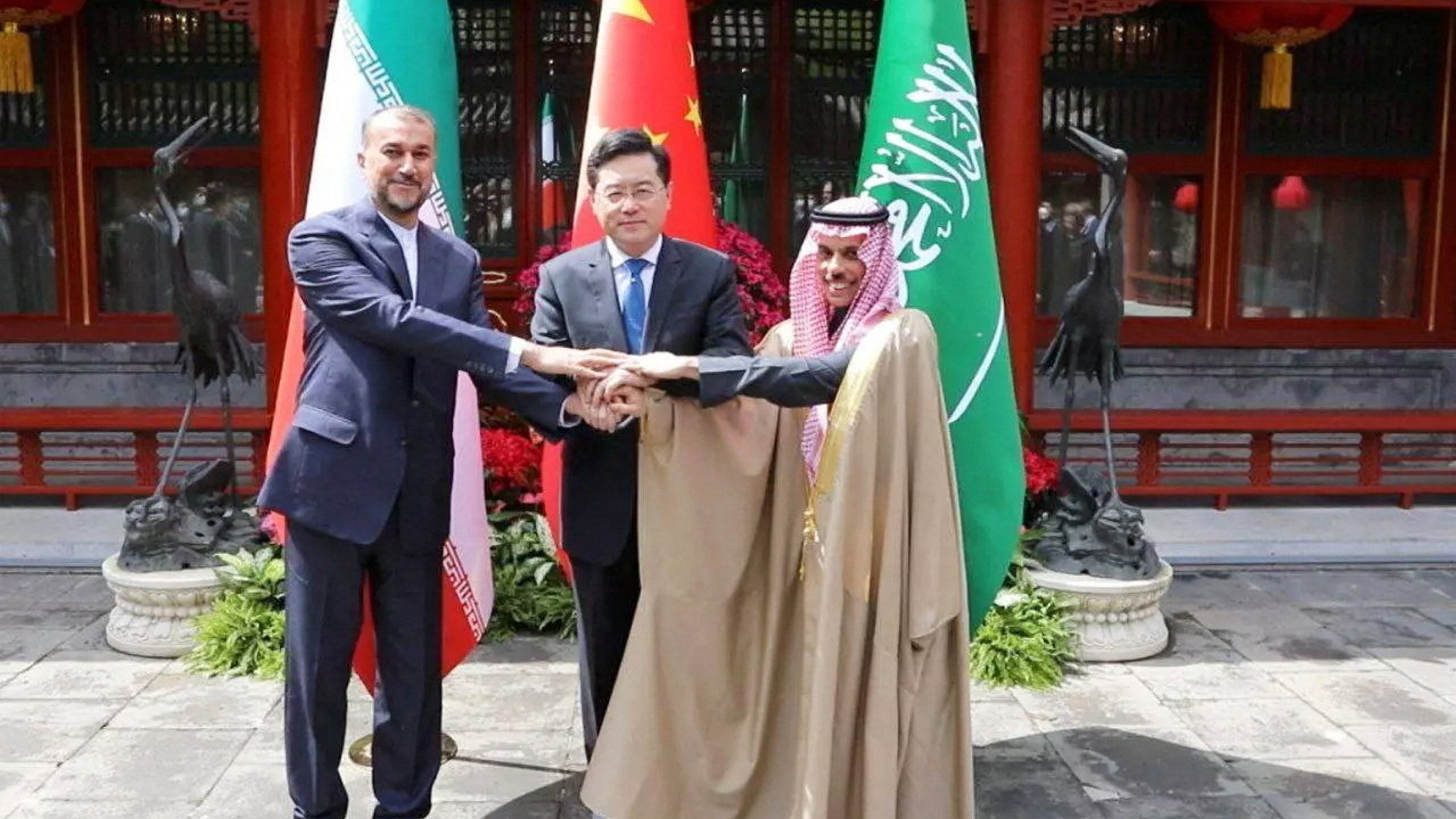China’s Vital Role in Global Affairs

Chinese diplomacy figured prominently as President Xi Jinping played host to representatives of Saudi Arabia and Iran in Beijing. This mediation wasn’t just a symbolic gesture aimed at “certain international parties,” but a strategic move aimed at advancing China’s interests in a region traditionally considered to be under American sway.
Chinese diplomacy persisted in its mission to bring Saudi Arabia and Iran closer together, facilitating a meeting between the Saudi Foreign Minister, Prince Faisal bin Farhan, and his Iranian counterpart, Hussein Amir-Abdollahian. The handshake, encouraged and sponsored by Chinese Foreign Minister Qin Gang, quickly made headlines and was widely covered by news agencies.
The meeting culminated in the establishment of a timeline and procedures for the exchange of diplomatic missions between the two countries. In the words of Minister Qin, “Beijing is committed to supporting Middle Eastern nations in taking charge of their own futures and safeguarding the region’s long-term interests in the face of external influences.”
It’s worth noting that the recent meeting between the foreign ministers of Saudi Arabia and Iran, a direct outcome of last year’s March 10 agreement, which stipulated the resumption of diplomatic ties between the two nations within two months, took place less than a month ago. This underscores China’s commitment to ensuring the success of the agreement and leveraging it to reshape Gulf-region dynamics in a manner that aligns with Chinese strategic interests.
The participation of the Chinese delegation in the meeting between Saudi Arabia and Iran’s foreign ministers lends added significance to the historic resumption of diplomatic ties between the two nations. The presence of the Chinese team is indicative of Beijing’s considerable political and strategic influence behind this momentous reconciliation — and it’s not limited to just facilitating the meeting.
It rather involves an effort to translate it into tangible gains on the ground. The prevailing consensus among observers is that China’s sponsorship of the agreement is a genuine assurance of its success, given Beijing’s ability to secure the Iranian side’s commitment to the deal.

The accord between Saudi Arabia and Iran, the two major oil players, presents an opportunity for China to promote stability in the global energy markets. Given Beijing’s robust strategic partnerships with other oil-rich nations such as Russia and the UAE, the agreement will inevitably contribute to China’s global stature and influence. Moreover, the pact is poised to have a ripple effect on other regional developments in the Middle East.
Despite China’s failed attempt to mediate the Ukraine crisis, which was eventually rejected by Moscow, Dmitry Peskov, the Kremlin spokesman, opines that China has “a very effective and commanding potential for mediation.” However, the situation in Ukraine remains complex, he added, and there seems to be no immediate prospect of a political settlement, leaving military operations as the only viable option.
From the outset, China was not optimistic that its proposal to resolve the Ukraine crisis would be accepted by the US, and the surprise came when the Russians declined it. This move came despite the Moscow summit’s announcement in March of being “strategic allies” committed to countering “American hegemony,” indicating that significant divergences continue to exist between the Chinese and Russian perspectives, ultimately serving the interests of the US and the West in general.
The crux of the matter is China’s new role as an active and influential mediator in resolving crises, irrespective of the outcome. The Ukraine conflict cannot be seen as an indictment of China’s mediation abilities or diplomatic prowess since it involves one of the parties (the US) that has a complex relationship with China, and Russia’s reluctance to consider any mediation that does not secure its territorial gains.
Additionally, the Chinese proposal, whose details remain obscure, highlighted issues that Russia may not concur with, such as respecting the sovereignty and territorial integrity of other countries, principles that Chinese diplomacy firmly upholds, given their link to Chinese national issues like the reunification of Taiwan and Beijing’s opposition to foreign interference in that matter.
Looking ahead, China is anticipated to take on a more proactive role in addressing a range of issues and crises, and could potentially step in as a mediator in pivotal crises across Africa and Asia. Such actions would contribute to the promotion of international security and stability, and any endeavor aimed at achieving peace ought to receive backing and motivation.
The author is an UAE political analyst and former Federal National Council candidate
Want to chase the pulse of North Africa?
Subscribe to receive our FREE weekly PDF magazine












